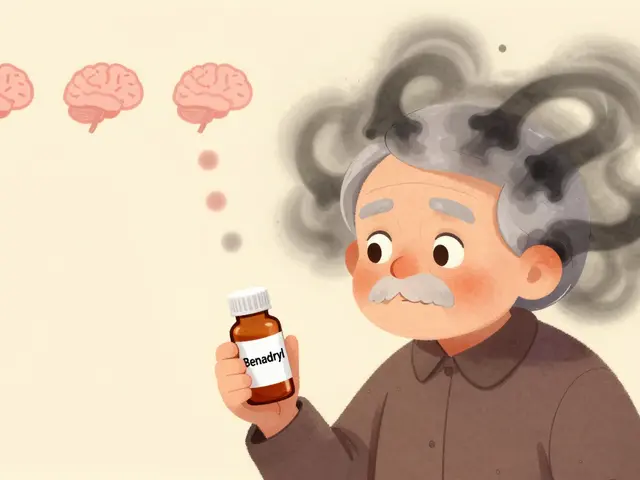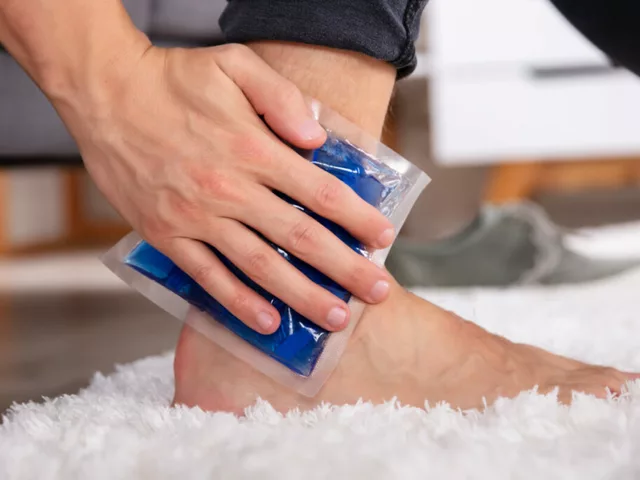Shingles isn't just a rash; it can be an agonizing experience that you'd definitely want to avoid. It’s caused by the varicella-zoster virus, which is the same culprit behind chickenpox. If you've had chickenpox, the virus lies dormant in your nerve tissue, and under certain conditions, like a weakened immune system, it can reactivate as shingles.
The good news? There are ways to reduce your risk. For starters, consider getting vaccinated. The shingles vaccine is highly effective in minimizing the risk and severity of the condition. Who wouldn’t want added protection, especially as we get older?
Besides the vaccine, boosting your immune system is your next best defense. Think of it as armor against the virus waking up. Regular exercise, balanced diet, adequate sleep, and stress management play a critical role in maintaining strong immunity. It couldn't hurt to also cut back on smoking and excessive alcohol intake, right?
- Understanding Shingles
- Importance of Vaccination
- Boosting Your Immune System
- Healthy Lifestyle Habits
- When to See a Doctor
Understanding Shingles
If you've ever had chickenpox, you've already met the varicella-zoster virus. This tricky virus doesn’t leave your body after recovery; instead, it just goes dormant, hanging out in nerve tissues like it's on a break. But under certain conditions like stress or a weakened immune system, it can reactivate, leading to shingles.
Sufferers typically experience a painful rash, often beginning with a tingling or burning sensation. It's not just an external issue; the pain can be intense. Most commonly, the rash appears on one side of the torso or face. Here’s a peculiarity—before the rash appears, some folks report feeling like they have the flu, minus the fever.
What Causes Shingles?
The reactivation is mainly related to immunosuppression. As we age, our immune system might not be as robust, making older adults more susceptible. It's why shingles is notably common in people over 50. However, severe stress, certain medications, or health conditions affecting the immune system can also set the stage for an outbreak.
Take Note of the Signs
- If you experience unexplained pain in an area before a rash appears and you’ve had chickenpox, it could be early signs of shingles.
- Pain is a giveaway. Often, the itchy rash is accompanied by stabbing pain.
- Sometimes, it's even possible to experience fever, headache, or light sensitivity along with the rash.
A fascinating stat to consider? About 1 in 3 people in the U.S. will develop shingles at some point, according to the CDC. That's a pretty sizeable chunk, so being informed matters.
Shingles isn't contagious in the same way as a cold, but if you have an active rash, you could spread the virus to someone who hasn’t had chickenpox or the chickenpox vaccine, potentially giving them chickenpox, not shingles.
By understanding more about shingles, you can better recognize its signs and take preventive measures. Knowledge, after all, is just one more tool in keeping this pesky virus at bay.
Importance of Vaccination
It turns out that the shingles vaccine is one of your best bets for keeping this painful condition at bay. Getting vaccinated can significantly reduce the risk of developing shingles, and if you do end up getting it, the vaccine helps in making the symptoms milder and the duration shorter.
Who Should Get Vaccinated?
The Centers for Disease Control and Prevention (CDC) recommends that adults over the age of 50 get the shingles vaccine. This is because the immune system usually weakens as we age, making older adults more susceptible to the virus. But, hey, here's the clincher: even if you're young but have certain immune system conditions or are on medications that weaken your immune response, you may also need it.
Types of Shingles Vaccines
There are mainly two types of vaccines approved to prevent shingles: Zostavax and Shingrix. While Zostavax has been effectively used, Shingrix is now the preferred option as it provides over 90% protection and is more effective at warding off shingles and its complications, like postherpetic neuralgia.
What to Expect When Getting Vaccinated
Now, getting vaccinated isn't a one-size-fits-all experience. With Shingrix, expect a two-dose regimen separated by two to six months. Some folks might feel slight discomfort with common side effects like soreness at the injection site or a mild fever. It's usually short-lived compared to the long-term benefit of not having to deal with shingles.
| Vaccine | Age Recommendation | Effectiveness |
|---|---|---|
| Zostavax | 60+ | 51% |
| Shingrix | 50+ | Over 90% |
All in all, the vaccination is a simple step, but it's an important one. A little poke today can save you a lot of trouble down the road. Talk to your healthcare provider about getting vaccinated if you haven't already.

Boosting Your Immune System
Keeping your immune system in tip-top shape is crucial when it comes to fending off shingles. It’s like preparing your body's defense line to bear the brunt of any looming attack from the virus. So, let's see what you can do to beef up those defenses!
Feed Your Body Right
Your diet serves as the foundation of your immune health. Think of it as the fuel that keeps your body's engines running smoothly. Incorporate foods rich in vitamins and minerals, especially Vitamin C, Vitamin D, and Zinc. So, get a healthy dose of fruits, veggies, lean proteins, and whole grains. You’d be surprised what a colorful plate can do for you.
Regular Exercise Matters
Exercise isn't just about losing weight or building muscle; it's crucial for maintaining a strong immune system. Consistent physical activity can help improve circulation, manage stress levels, and boost your immune responses. Whether it’s a brisk walk around the block, a yoga session, or hitting the gym, find an activity you enjoy and stick to it.
Sleep: Your Secret Weapon
Believe it or not, catching enough z’s is one of the most effective ways to arm yourself against viruses. Quality sleep helps repair and rejuvenate your body. So, aim for 7-9 hours per night. Can you make that a priority? Sure, we all love a good Netflix binge, but nothing beats waking up refreshed and rejuvenated.
Mind Your Stress Levels
Chronic stress is a notorious immune system dampener. Learning how to manage stress can be a game-changer for your health. Consider practices like meditation, deep-breathing exercises, or even just carving out some downtime to unwind. Remember, mental well-being goes hand-in-hand with physical health.
| Methods | Impact on Immune System |
|---|---|
| Nutrition | Supports immune function with essential nutrients |
| Exercise | Enhances circulation and immune response |
| Sleep | Facilitates body repair and immune restoration |
| Stress Management | Prevents immune suppression |
By making these aspects part of your regular routine, you're not only setting up a barrier against shingles but also adopting a healthier lifestyle overall. You’ll be grateful for it in more ways than one!
Healthy Lifestyle Habits
Adopting a healthy lifestyle can lower your risk of shingles, and it's easier than you might think. You know the basics, right? Eat well, move more, and stress less. Let's break that down into practical steps.
Eat Well
Your immune system loves a good, balanced diet. Think about incorporating more fruits, veggies, whole grains, and lean proteins into your meals. These foods provide the nutrients your body needs to fend off infections. Want to make it fun? Try some new recipes or a weekly fruit and veggie challenge with your family.
Stay Active
Exercise doesn’t have to mean endless hours at the gym. Aim for about 150 minutes of moderate aerobic activity each week, like brisk walking or cycling. If that feels like a lot, split it into shorter sessions throughout your day. Got a pet that loves walks? They can help keep you motivated!
Manage Stress
Stress can really mess with your immunity, so finding ways to chill out is key. Consider techniques like meditation, yoga, or even regular deep-breathing exercises. It’s not about perfection—just finding what works for you and sticking with it.
Avoid Smoking and Excess Alcohol
Smoking and heavy drinking may weaken your immune system, making you more susceptible to shingles. Cutting back or quitting can give your immunity a boost. Plus, your body will thank you in many other ways, too.
Here’s a quick snapshot to remember how you can reduce your risk:
- Eat a balanced diet
- Exercise regularly
- Manage stress effectively
- Avoid smoking and limit alcohol

When to See a Doctor
So, when is it time to stop Googling your symptoms and actually see a doctor? If you're dealing with a rash that makes you go "ouch!" just looking at it, or if you're not feeling too hot overall, it's smart to seek medical advice. Shingles can be serious, and getting professional help early can make a huge difference.
Signs That Require Medical Attention
- If the rash or shingles pain is close to your eyes, it's crucial to get checked out immediately. It can lead to serious eye problems if not treated.
- See your doctor if you're above 60 or have a weakened immune system. You're more susceptible to complications, so don't mess around.
- If your rash is spreading, feels super painful, or is accompanied by a fever, it’s time to pick up the phone.
Generally, catching shingles early can make the whole ordeal a lot less miserable. Antiviral medications can help, but they've got to be started in the first few days of symptoms to do the best job.
Managing Symptoms at Home
Before you make that doctor’s appointment, some home care might offer a bit of relief. Use cool, wet compresses to ease itching and pain. Over-the-counter pain relievers like acetaminophen or ibuprofen can help too. But keep in mind, these are just temporary fixes.
Here's a quick glimpse of when to see a doctor based on common symptoms:
| Situation | Recommended Action |
|---|---|
| Rash near eyes | See a doctor immediately |
| Severe rash or pain | Visit within 24-48 hours |
| Fever, weakness | Seek medical help |
Remember, it's always better to err on the side of caution. A quick check-in with a healthcare professional can spare you a lot of future discomfort with virus prevention strategies.





18 Comments
Gareth Pugh
Imagine your immune system as a bustling city, each cell a diligent citizen. When we nourish it with proper sleep, diet, and movement, we keep the streets clean and the gates shut against unwanted invaders like shingles. A vaccine is like a seasoned guard posted at the border, ready to sound the alarm. So, treat your body like a masterpiece, and the virus will find fewer cracks to slip through.
Illiana Durbin
Staying consistent with light exercise and a balanced diet can subtly reinforce your defenses. Adding a short daily meditation can also calm stress hormones that weaken immunity. These gentle habits, paired with the shingles vaccine, create a solid safety net.
Tyler Heafner
The administration of the recombinant zoster vaccine, Shingrix, has been demonstrated to confer over ninety percent efficacy in clinical trials. Recipients should anticipate a two-dose schedule, separated by an interval of two to six months. Mild local reactions, such as erythema and tenderness, are common and self‑limiting. It is prudent to discuss any contraindications with a qualified healthcare professional.
ADam Hargrave
Oh sure, because ignoring a proven vaccine is the patriotic way to prove you’re tougher than a virus. Who needs science when you’ve got good old‑fashioned stubbornness, right? Bet you’ll be the hero of the neighborhood when that rash shows up.
Michael Daun
Yo guys, just skip the junk food and grab some veg every day it helps alot
also try to catch enough zzzs dont overthink it
Rohit Poroli
From an immunological perspective, the varicella‑zoster virus exploits cellular immunity decline, known as immunosenescence, to reactivate. Prophylactic immunization with a recombinant glycoprotein E subunit vaccine augments both humoral and cell‑mediated responses, thereby mitigating viral reactivation risk. Incorporating macro‑ and micronutrient optimization-particularly vitamins D and C, zinc, and omega‑3 fatty acids-further synergizes the adaptive immune cascade. Thus, a multimodal strategy integrating vaccination, nutraceutical support, and lifestyle modulation yields the most robust protective phenotype.
Anshul Gupta
Honestly, who needs all this hype about vaccines when you can just hope your immune system miracles itself? If you get shingles, just blame the stress and move on.
Maryanne robinson
Wow, this guide really hits the nail on the head when it comes to demystifying shingles and how to keep it at bay.
First off, the vaccine conversation is crucial, and I love how the article emphasizes Shingrix's impressive over‑90‑percent effectiveness.
Imagine walking into a pharmacy and getting a quick shot that could spare you weeks of excruciating pain-that's empowerment.
But the vaccine alone isn't a silver bullet; it works best when paired with a holistic lifestyle.
Eating a rainbow of fruits and vegetables supplies antioxidants that neutralize oxidative stress, a known trigger for viral reactivation.
Regular aerobic activity, even something as simple as a daily 30‑minute brisk walk, improves circulation and mobilizes immune cells throughout the body.
Sleep is another non‑negotiable pillar-seven to nine hours of uninterrupted rest allows for cytokine production and tissue repair.
Stress management can’t be overstated; chronic cortisol elevation suppresses T‑cell function, opening the door for the dormant virus.
Mindfulness practices like meditation or even journaling can lower that cortisol baseline and keep your nervous system calm.
Avoiding smoking and limiting alcohol consumption removes two major immunosuppressive agents from the equation.
If you’ve already had a bout with shingles, keep an eye on post‑herpetic neuralgia and discuss antiviral therapy early with your physician.
The article’s section on when to see a doctor is spot‑on, especially the warning about lesions near the eye.
Early antiviral treatment within 72 hours can dramatically reduce both the severity and duration of the outbreak.
From a public health standpoint, getting vaccinated also protects your community, especially those who can’t be vaccinated themselves.
In summary, think of the vaccine as the front door lock and the lifestyle habits as the sturdy walls around your house.
Stay proactive, stay informed, and you’ll give that sneaky varicella‑zoster virus very few chances to crash the party.
Erika Ponce
Totally agree! Small steps like a veggie snack can really boost immunity.
Danny de Zayas
Interesting points, especially about the timing of antivirals.
John Vallee
When the rash first appears, the body's alarm systems scream louder than any fire drill you've ever experienced.
The pain can be a burning, electric shock that radiates across the dermatome, leaving you writhing in discomfort.
Immediate medical attention can deploy antivirals that act like a tactical SWAT team, subduing the viral onslaught.
Delaying treatment is akin to letting a small fire turn into a raging inferno, making recovery far more arduous.
Moreover, the risk of post‑herpetic neuralgia looms like a lingering ghost, haunting patients long after the rash fades.
Thus, the mantra should be: vaccinate early, stay vigilant, and act swiftly at the first sign of trouble.
Your immune system is a sophisticated battlefield; equip it with both proactive vaccines and reactive therapies.
Neglecting either aspect is an invitation for the virus to reclaim its dominion.
Brian Davis
The tradition of communal health in many cultures underscores the importance of vaccination as a shared responsibility. In Japan, for example, routine adult immunizations are woven into the fabric of public health policy, reducing shingles incidence dramatically. Similarly, Scandinavian countries prioritize lifelong wellness programs that combine diet, exercise, and preventive care, creating resilient populations. By adopting these holistic approaches, we not only protect ourselves but also contribute to herd immunity. The article rightly highlights that individual choices ripple outward, affecting the health of families, neighborhoods, and societies at large. Embracing both medical advances and cultural wisdom offers the most comprehensive shield against shingles.
Michael Dennis
While the cultural examples are illustrative, it is imperative to note that vaccine efficacy is not solely a function of societal norms but also of immunogenetics. Studies have shown that HLA polymorphisms can modulate individual response to Shingrix, thereby influencing protective outcomes. Consequently, public health strategies should incorporate personalized risk assessments alongside broad immunization campaigns. A nuanced approach ensures optimal resource allocation and maximal disease mitigation.
Blair Robertshaw
lol the whole vax hype is just pharma pulling a fast one don’t believe the stats
Alec Maley
While skepticism can be healthy, the bulk of peer‑reviewed evidence supports Shingrix’s safety and high efficacy across diverse cohorts. It’s worth examining the data before dismissing the benefits outright.
Sandra Perkins
Sure, because ignoring science always works out.
rama andika
Oh absolutely, the secret cabal of doctors is definitely hiding a cure for shingles while they push pills to keep us dependent-what a plot!
Kenny ANTOINE-EDOUARD
Ultimately, the battle against shingles is fought on multiple fronts: vaccination, lifestyle, and timely medical intervention. By aligning these strategies, we create a synergistic defense that outpaces viral reactivation. It’s a reminder that health is not a static state but an ongoing practice of informed choices. Keep educating yourself, consult healthcare providers, and stay proactive. In doing so, you empower both your own well‑being and that of the community around you.